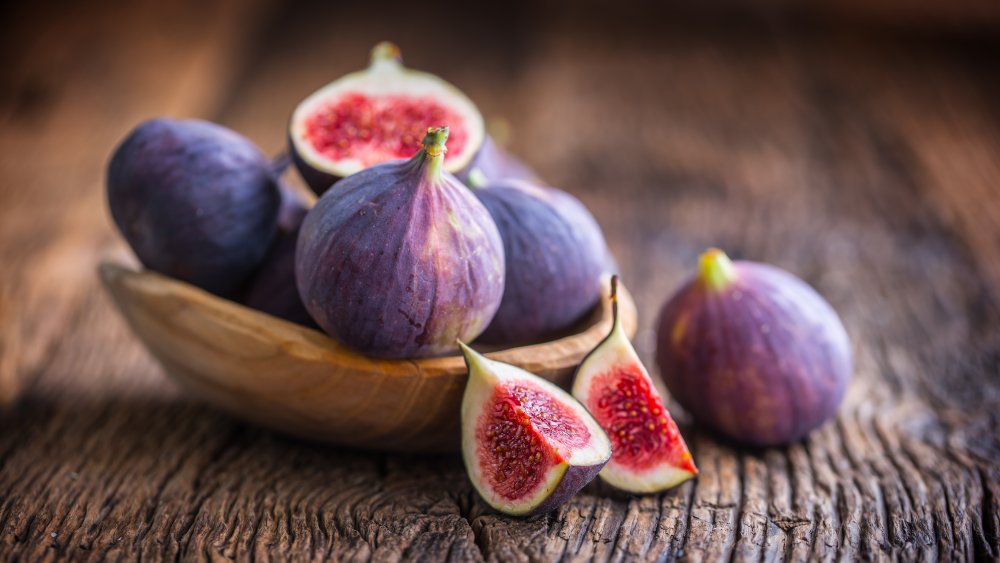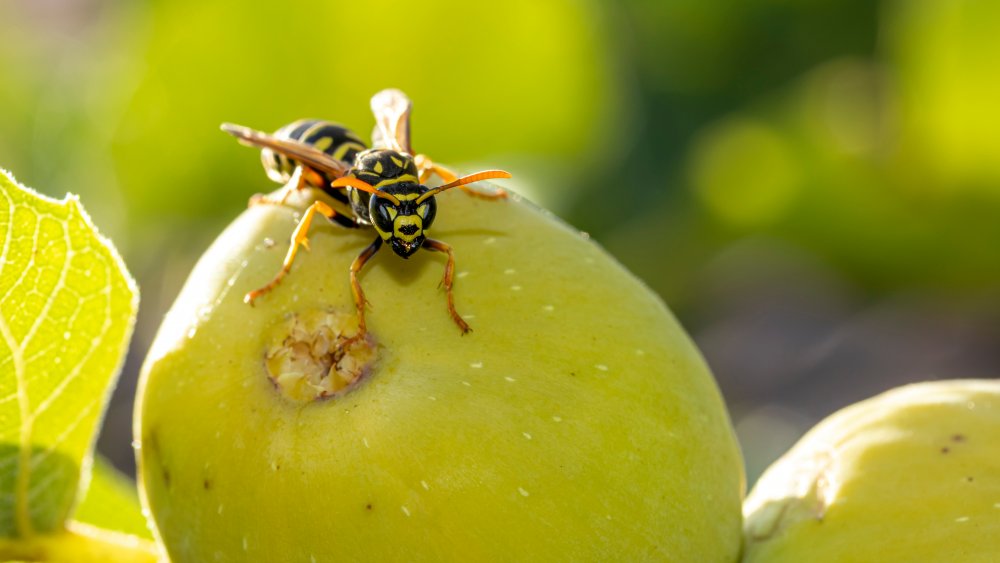What Vegans Should Know Before Eating Figs
Trying to decide what to eat when you're a vegan is not always easy as you would think. According to WebMD, vegans can eat any food made from plants, but must stay away from common animal products like eggs, cheese, and milk. There's a variety of reasons why people decide to eat this way, including religious reasons (via Happy Herbivore), not wanting to hurt animals, or because they want to help protect the environment (via Vegan.com). Aspects of the vegan diet have also been shown to help protect against certain types of cancers and help consumers lose weight, as reported by Healthline.
However, it can be sometimes tricky to know what you can and can't eat if you're trying to be a vegan. According to the Vegan Society, a true vegan avoids all animals products, including fish, insects, and even honey; but when you consider having a fig, things start to become less clear if vegans should or shouldn't eat them.
Some figs may contain remnants of wasps
Apparently, fig trees bear fruit because of the fig wasp, as reported by Smithsonian Magazine. Female wasps bury themselves into a fig to lay their eggs, and die shortly after. When the wasp eggs hatch, the young males impregnate the baby females and chew exit holes for the girls to fly away and lay their eggs in a new fig. The male wasps are very tired after this process and are born without wings, so they don't make it out of the fig either.
This reality has left vegans on the fence about eating figs. Vegan and nutrition student Jamie Kennedy told Vegan Life that not all fig varieties are grown with wasp pollination. "Because this is a natural process, I am satisfied I am not contributing to the exploitation or suffering of animals by eating this fruit," Kennedy said; but not everyone agrees with this outlook. Jess Mann, a vegan for over 22 years, told the outlet that even though there could possibly be trace amounts of animal products in other food from the harvesting process, they views figs differently. "You are not guaranteed to be eating these insects when you're eating other veggies or fruits, but you are with figs, so it seems like an easy and practicable step to take to avoid them," Mann explained. So it looks like the choice is really up to each individual and how you feel about the fig pollinating process.

